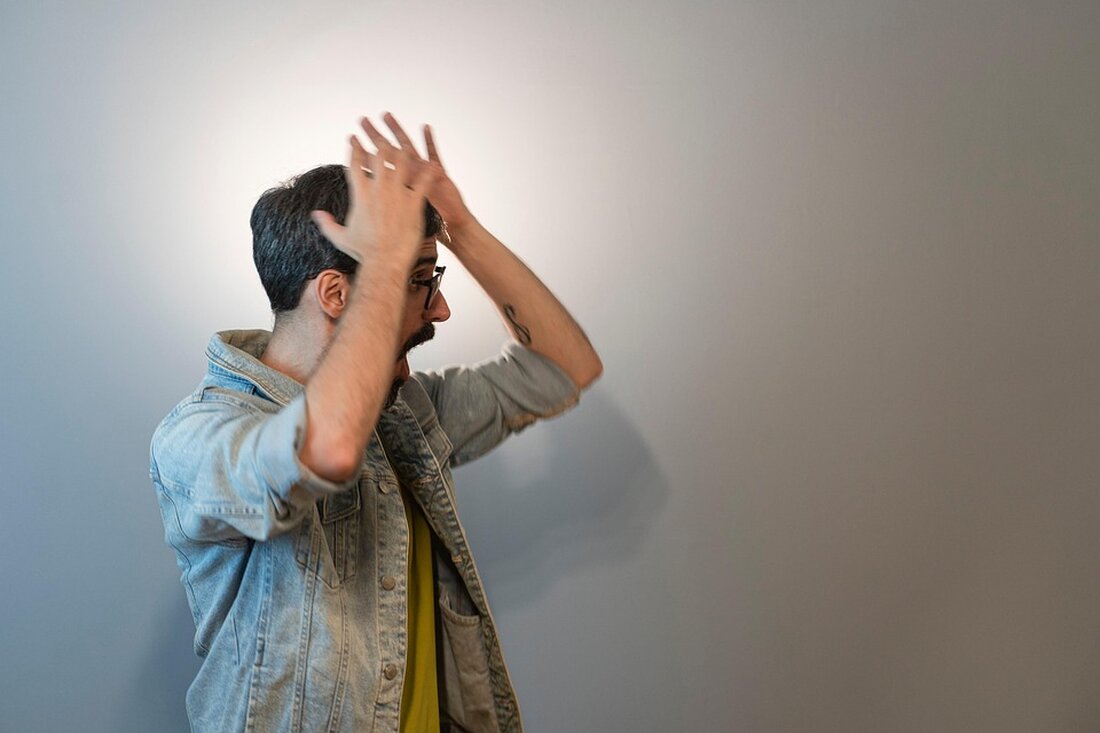Venezuelans react to video of their relatives in the Salvadorian prison
Family members of Venezuelans caught in Salvador react emotionally to the first video of their loved ones. President Maduro criticizes the deportations as a kidnapping and calls for her release.

Venezuelans react to video of their relatives in the Salvadorian prison
on the couch in her home in Maracay, Venezuela, Mirelis Cacique López observes her son Francisco Javier García Cacique in the first published video of a group of Venezolans, which was sent by the USA to the Cecot high -security prison in El Salvador.
insights into prison life
"I recognized my son among the boys," Cacique López told CNN. "We thank God that we could see our relatives, even under these conditions," she added, emphasizing that she would continue to pray for her release.
The video was broadcast on Tuesday in the One America News Network, in a program that is moderated by the former US Republican Congress Member Matt Gaetz. He visited Cecot and had access to the prison wing, in which more than 200 Venezuelans are housed by the government of President Donald Trump. Many of them were classified under the controversial Alien Enemies Act as alleged members of the Venezuelan Gang Tren de Aragua without sufficient evidence.
emotional reactions of relatives
The report shows a one-minute clip of the Venezuelan inmates behind bars, which are dressed in white T-shirts and shorts, the uniform of the Cecot prisoners. As soon as the TV cameras enter prison, the detainees react with calls to "Freedom, Freedom!" And "Venezuela!", While another group with the fist and four fingers bent over the thumb, a universal gesture for help.
Yenni Luz Rincón Ramírez recognized her brother Jonathan Miguel Ramírez in the video. "I felt joy because I could finally see him after 60 days," she said to CNN from Venezuela. She emphasized that the arrest of her brother was unfair and claimed that he was not a member of Tren de Aragua.
rincón Ramírez is not the only one who has seen a relative for the first time since the announcement of the deportations in March.
uncertainty and concern
Blanca Martínez told CNN that she had learned from a list of media published that her partner Miguel Ángel Rojas was deported to El Salvador. Since then she hadn't heard from him. So far, neither the US nor the Salvadoran government have published official lists with the names of those deported by Cecot.
"It made me sad to see him there without knowing how he really is," said Martínez and added that Rojas suffered from depression. The thought that he is held in Cecot is very worried.
family gang and hope for freedom
Angie Ríos, a US citizen, recognized her husband Jesús Ríos in the video. "I saw him and I heard him," she said. "He is the most beautiful of everyone," she lovingly added her partner. Ríos mentioned that she last saw her husband on March 15th. "He is in survival mode," said Ríos, when she saw Jesús, who was one of the detainees who were "freedom!" Riefen.
"I have the feeling that in this video he fights for his voice to be heard."
political reactions and possible solutions
CNN could not check whether the persons mentioned have criminal criminal prison in the United States and asked the Ministry of Internal Security for an opinion.
After the publication of the video, Venezuelan President Nicolás Maduro again condemned what he sees as a kidnapping of Venezuelan citizens in El Salvador. "I swear that we will save the 253 Venezuelans who were kidnapped in El Salvador from concentration camps, as was seen today," he said on Tuesday. "Let us ask us that these young people who, without the right to appear in front of a judge, and without the right to defense, without having committed a crime, be kept immediately.
cnn asked the Salvadoranian presidency to comment on Maduro's statements.
In April, Salvadoranian President Nayib Bukele Maduro proposed an exchange of deported people and Venezuelans, known as "political prisoners". Maduro reacted by demanding access to the prisoners for lawyers and family members.
In March, El Salvador agreed to capture up to 300 by the Trump government, deported immigrants in Cecot. As part of an agreement between the two governments, El Salvador would receive about $ 6 million from the United States to accommodate them there.
Osmary Hernández and Caroll Alvarado contributed to this report.

 Suche
Suche
